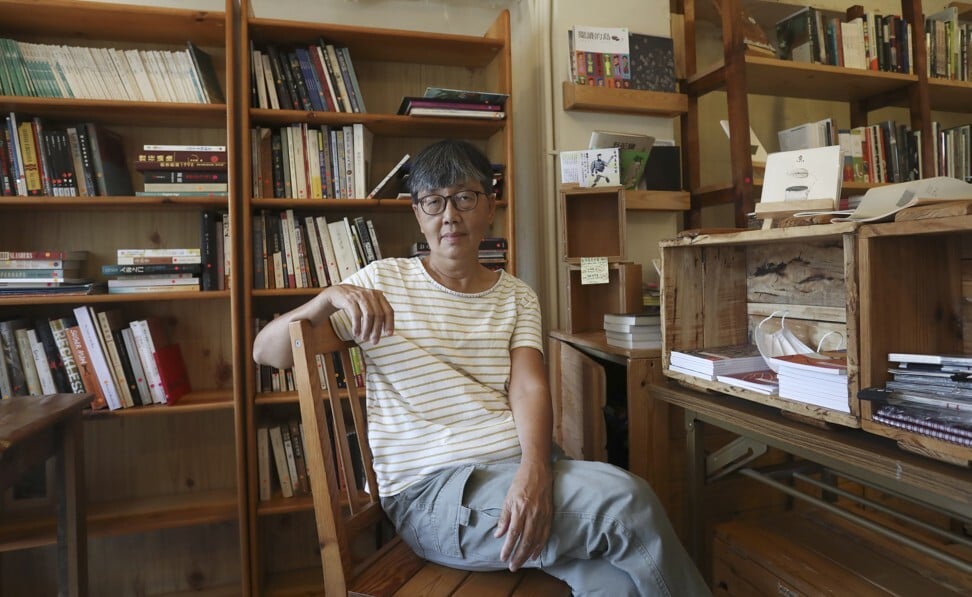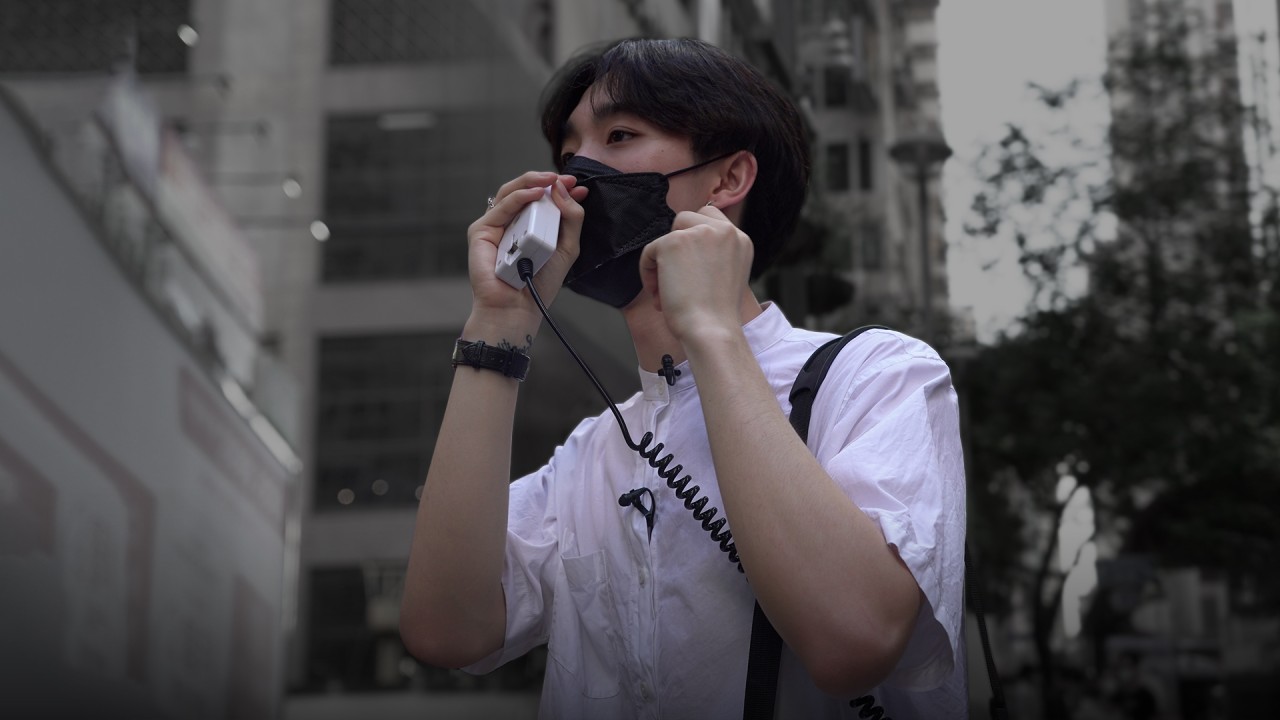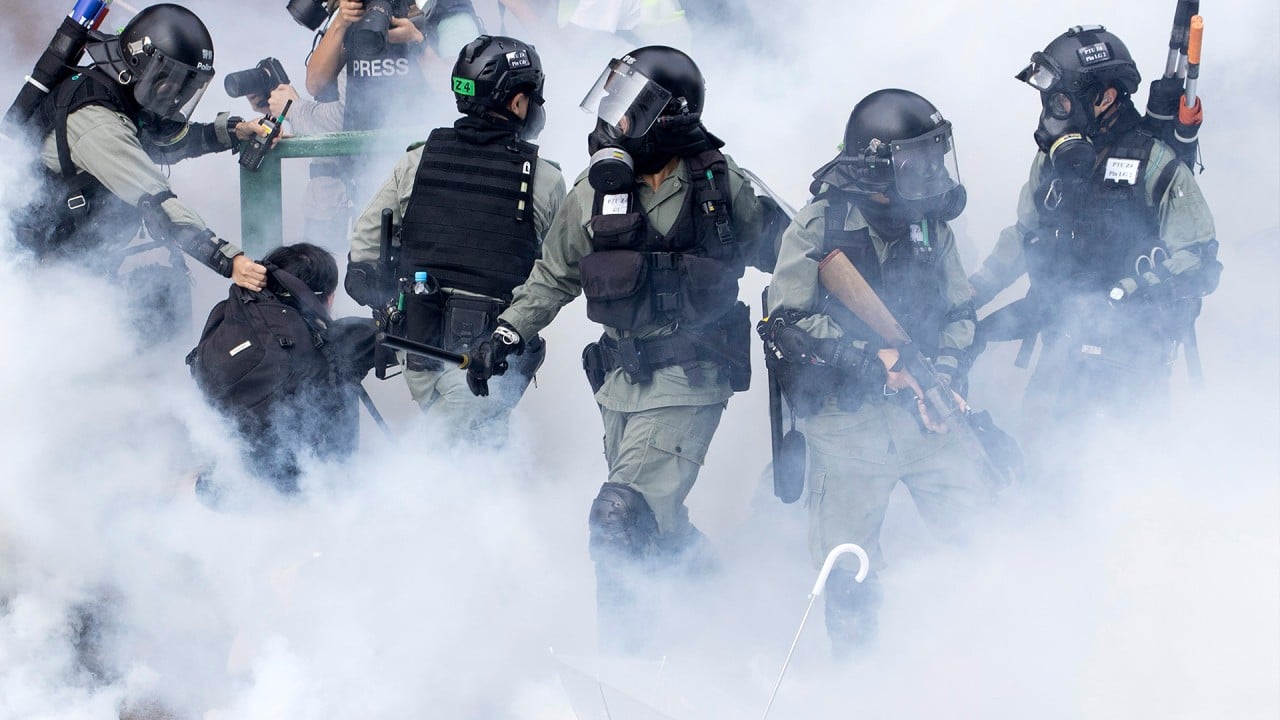
Hong Kong arts hub chief fends off national security law attacks, pledges more vigilance in screening new tenants
- Art and Culture Outreach at Foo Tak Building in Causeway Bay denies it was ‘base of independence’
- ‘Circumstances have changed’ since opposition party Demosisto, film group Yang E Chi were tenants
Away from the buzz of Hong Kong’s Causeway Bay shopping district, Foo Tak Building sits along a quiet street, providing budding artists with low-priced space.
East Week magazine, owned by Hong Kong-listed Sing Tao News Corporation and viewed as government-friendly, ran a cover story last month, declaring the arts hub a “base of independence”.
Books attacked, screenings cancelled: the impact of censorship in Hong Kong
It was a serious charge, as the sweeping new law bans acts of secession, subversion, terrorism and collusion with foreign forces.
The day after that report, pro-Beijing newspaper Wen Wei Po made similar allegations, saying the centre had a track record of supporting anti-government groups such as the now-disbanded Demosisto opposition party and Ying E Chi, the independent filmmaking group behind controversial documentaries.
Although both groups were previous tenants, ACO head May Fung Mei-wah, 69, a video artist herself, denied the accusations and said the centre had never supported separatism.
“People have said certain things about us being the base of independence. But what base of independence exactly? I don’t know of one tenant who is advocating that,” she told the Post.

But with the national security law in place, she said, the centre would be more vigilant in vetting new artists looking for space.
“If there is a new tenant, we will be mindful specifically of their political stance,” she said. “Tell me, who is not more mindful these days?
“We don’t want to infringe the national security law. This is something that has been said repeatedly by the government, that we need to respect national security. And they have been resolute in taking action, so we have to take it seriously.”
Reading between the ‘red lines’: bookshops try to navigate security law
The artist-in-residence project began at Foo Tak Building in 2003 after ACO took over 14 units from the Dawei Charitable Foundation, half the units in the 53-year-old building.
Over the years, the centre has leased units to emerging artists or groups dedicated to cultural development, such as film studios and philosophy buffs looking for hang-out space, at rentals well below the market rate.
The original owner remained a mystery even as the number of units for the arts hub grew to 20. They are now owned by a company set up under ACO’s name, with six directors including Fung, the chairwoman.

Current tenants include young intellectuals who hold philosophy sessions for the public, literature lovers promoting poets and the classics, and artists who teach martial arts to break their bookish stereotype.
Some tenants have stayed a couple of years, while others have come and gone within months.
Storm over M+ sparks fear Beijing is targeting Hong Kong’s art scene
The ACO attracted attention and criticism recently because its past tenants included the opposition group Scholarism and its successor, Demosisto, which disbanded after Beijing imposed the national security law on Hong Kong.

06:44
National security law one year on: Hong Kong activists still testing political ‘red lines’
Demosisto spent two months at the building in 2018 preparing for a by-election that year, and another four months last year preparing for the Legco election, which was eventually postponed.
Fung said: “We didn’t screen them politically because at the time it was not required, just like banks allowed them to open a bank account. But now, even banks would refuse to open an account for such groups. The circumstances have changed.”
She said Demosisto needed a space to prepare for elections and the pursuit of democracy could be regarded as a cultural aspect of civil society activity.

07:30
China’s Rebel City: The Hong Kong Protests
In July, it had its HK$700,000 (US$90,000) grant pulled by the Arts Development Council, which pointed to the “negative effects” of the films it released.
Fung said she offered Ying E Chi space years ago because she was a filmmaker herself and knew its owners. The group moved out in 2019 and she said it had not asked to return.
Asked whether the recent allegations against ACO had struck fear among tenants, Fung said they were mindful not to breach any law.
We try to avoid mentioning local politics … if the literary work somehow touches on such issues, we will remind everyone to refrain from expressing opinions
An active member of a literature club said it held regular gatherings at venues offered free of charge by various ACO tenants and held film screenings and readings of works by authors such as George Orwell, Italo Calvino and Franz Kafka.
Declining to be named, she said the group had become more cautious in light of the fast-changing political landscape.
“We can only remain more vigilant to protect ourselves from getting into any trouble,” she said.
Some film screenings are no longer open to the public, and all reading events are limited to small groups of no more than 20 familiar participants.
“We try to avoid mentioning local politics, and even if the literary work somehow touches on such issues, we will remind everyone to refrain from expressing opinions,” she said.

Writer Tang Siu-wa, who co-founded House of Hong Kong Literature, one of ACO’s best known tenants until it moved out recently after eight years, said she was grateful for having the space to grow the publishing house and promote reading.
“Space is the most valuable resource in Hong Kong. By renting out space at a discounted price to support young artists, Foo Tak Building has given a lot of help to allow local artists or pioneers,” she said.
As her project grew into a full-fledged organisation, she moved out to make way for other new tenants and now pays a much higher rent for premises at San Po Kong in Kowloon.
Books by opposition figures still sold at Hong Kong Book Fair despite complaints
For now, Fung has vowed to carry on and said she would rely on common sense.
Like many in Hong Kong, she cannot be sure where the “red lines” of the national security law lie.
“When you have to turn to the authorities and the law for everything you do, does it mean there is automatically no more room for the arts? Artists can probably still carry on. It’s just that because of recent events, everyone got too bogged down by them,” she said.


